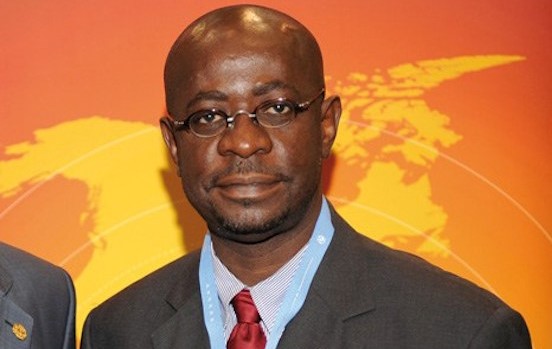Prime Minister and Political Leader
Sir Nicholas Alexander Braithwaite, also known as Sir Nick, was born on July 8, 1928 on the island of Carriacou. He was educated at Mount Pleasant Government (elementary) School and Grenada Boys Secondary School (GBSS). His education continued at Teacher’s Training College in Trinidad and University of the West Indies in Jamaica.
His career spanned five decades, from the 1950s to the 1990s, and different eras in the history of politics in Grenada. Following a short stint as an oil refinery operator in Curacao, Sir Nick spent 30 years working in education, serving students in Grenada and other islands in the region. He later became principal of both primary and secondary schools, and subsequently served as Chief Education Officer.
When Sir Nick made the transition to public administration in 1974, he was excited about the new phase of his life. After serving as Chief Education Officer, he held the position of Regional Director of the Commonwealth Youth Program. His political career began in January 1983 when he was appointed by Governor General, Sir Paul Scoon, to serve as head of Grenada’s Interim Government following an invasion of the island by United States and Caribbean military forces. After its dissolution following an election in 1994, he served as an Executive Adviser to Prime Minister Herbert Blaize.
In 1989, Sir Nick was elected political leader of the NDC. He won the Carriacou and Petite Martinique seat in the general elections held on March 13, 1990, and on March 16, 1990, was appointed Prime Minister of Grenada, Carriacou and Petite Martinique. His most important goals were to restore democracy, promote good governance, and implement sound and appropriate economic policies, creating a model for sustainability in the region. Foremost among the gutsy decisions he had made toward these goals were restoring the island’s constitution and implementing a Structural Adjustment Program designed by local and regional experts rather than adhere to the recommendations for reform made by the IMF and World Bank.
Despite being a one-term prime minister, Sir Nick left behind a legacy of steadfast leadership during a time of national crisis. He is also remembered for bringing local and regional communities together through sports. He passed away on October 28th, 2016 at the age of ninety-one. But his leadership and spirit continue to inspire us.
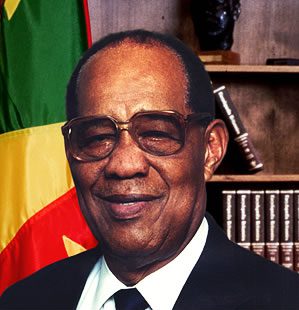
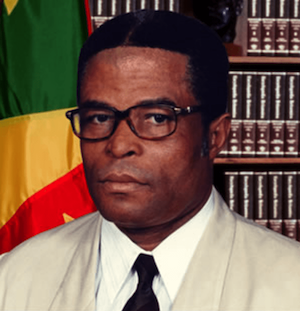
Prime Minister and Political Leader
George Ignatius Brizan, was born on October 31, 1942 in the parish of St. David. He received his elementary education at St. Dominic’s Roman Catholic Primary School and his secondary school education at Presentation Brothers College. He pursued higher education after high school, leading to awards of a Certificate in Education from the University of the West Indies, Bachelor of Arts and Master of Arts degrees in History and Economics from the University of Calgary and a Master of Arts in International Economics Relations from Carleton University.
In 1987, Brizan, along with other founding members, established the National Democratic Congress (NDC). He was subsequently succeeded as political leader by Nicholas Brathwaite. Brizan was again elected political leader of the NDC in September 1994 following the resignation of Sir Nicholas Braithwaite. He became Grenada’s sixth Prime Minister on February 1, 1995 and served for four months. During his term in office, his responsibilities included Minister of Agriculture & Tourism, Education & Youth, Finance, Trade, Industry & Energy.
Brizan served as Leader of the Opposition from 1995 to 1999. In 2009, he was appointed commander of the British Empire (CBE). He passed away on 18th February 2012 at the age of sixty-nine.
Political Leader
Joan Purcell was born on September 23, 1941 on the island of Carriacou where she received her primary education. She went on to pursue tertiary education at the University of the West Indies and University of Toronto where she was awarded a Bachelor and Master degree in social work. In 1983, when she was called to political life, her training in social work and her interest in community and participatory development enabled her to take advantage of the opportunity to play an important leadership role. Purcell first served as Deputy Leader of the NDC, and later as political leader, leaving an indelible mark on party members and paving the way for future female leaders in the tri-island state.
Purcell had several stints in government. Her journey began as President of the Senate, a position she held from 2008 to 2013. She also served in both the upper and lower houses, followed by stints as a member of Parliament and Acting Prime Minister.
Although she is retired from frontline politics, Purcell continues to serve her community as a consultant in the areas of leadership and social development.
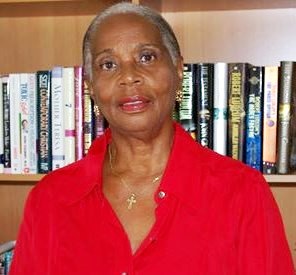
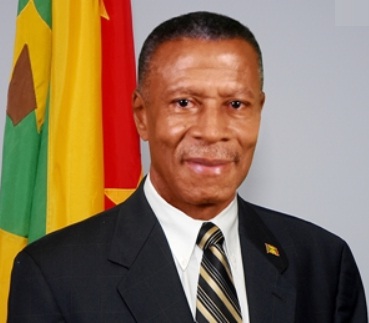
Prime Minister and Political Leader
Tillman Thomas was born on June 13, 1947 in Hermitage, St. Patrick. He worked his way up from the classrooms of Tivoli Roman Catholic School to the hallowed halls of New York’s Fordham University where he earned a Bachelor’s Degree in Economics. He later attended the University of the West Indies, Cave Hill Campus and the Hugh Wooding Law School where he completed a LL.B. and a Certificate of Legal Education respectively.
Upon his return to Grenada in 1978, Tillman Thomas began his political career when he became involved in the Human Rights and Legal Aid Programme along with then leader of the New Jewel Movement, Maurice Bishop. This programme provided legal support services to needy citizens. On July 11, 1981 Tillman Thomas was imprisoned for his part in the publication of the Grenadian Voice Newspaper, a newspaper that was seen by the Maurice Bishop led Peoples Revolutionary Government (PRG) as “counter-revolutionary”. He was released from prison when US-led forces intervened in Grenada in 1983.
Following the events of October 1983, when democracy was restored to the island, Mr. Thomas joined the Grenada Democratic Movement (GDM). The GDM became one of the four parties to merge in 1984, forming the New National Party (NNP) which governed Grenada from 1984 to 1990. He won the St. Patrick East constituency in the 1984 election and was appointed as a Junior Minister in the Ministry of Legal Affairs.
In 1987 he left the NNP and became a founding member of the NDC, and from 1987 to 1990 he was the party’s Assistant General Secretary. Tillman Thomas was re-elected in the St. Patrick’s East constituency on November 27th, 2003 and became Leader of Her Majesty’s Opposition. Five years later, as a result of the July 8th, 2008 General Elections, he became Grenada’s 8th Prime Minister since Independence.
Political Leader
Nazim Burke was born on September 18 1956 in Belair Carriacou as Victor Gordon Burke and changed his name to Victor Nazim Gordon Burke. He holds a Bachelors Degree (B.A. (Hons.) in economics from Concordia University in Canada (1980) and a Masters Degree (M.A.) in economics from the University of Windsor (1985), with special emphasis on International Development. In addition, he holds a Bachelors degree in Law (LL.B.) from the Osgoode Hall Law School of York University in Canada (1988) and completed his Masters of Laws (LL.M.) degree from Queen’s University in Canada in 1994, with special emphasis on International Financial Services Law.
He served as an elected Member of the House of Representatives (MP) of the Parliament of Grenada. In July 2008, he was appointed the Minister of Finance, Planning, Economy, Energy and Cooperatives of Grenada, a position he held until February 2013. In addition, he served as the Minister of Foreign Trade of Grenada between July 2008 and July 2009. Between July 2008 and February 2013, he also served as the Leader of Government Business in the House of Representatives of the Parliament of Grenada.
As Minister of Finance and the Economy of Grenada, Mr. Burke served as Grenada’s Governor at several multilateral financial institutions, including the International Bank for Reconstruction and Development (the World Bank), the International Monetary Fund (IMF) and the Caribbean Development Bank (CDB). In that ministerial role, he also served as a member of the Monetary Council of the Eastern Caribbean Currency Union (ECCU) between 2008 and 2013. In February 2014 he was elected Political Leader.
